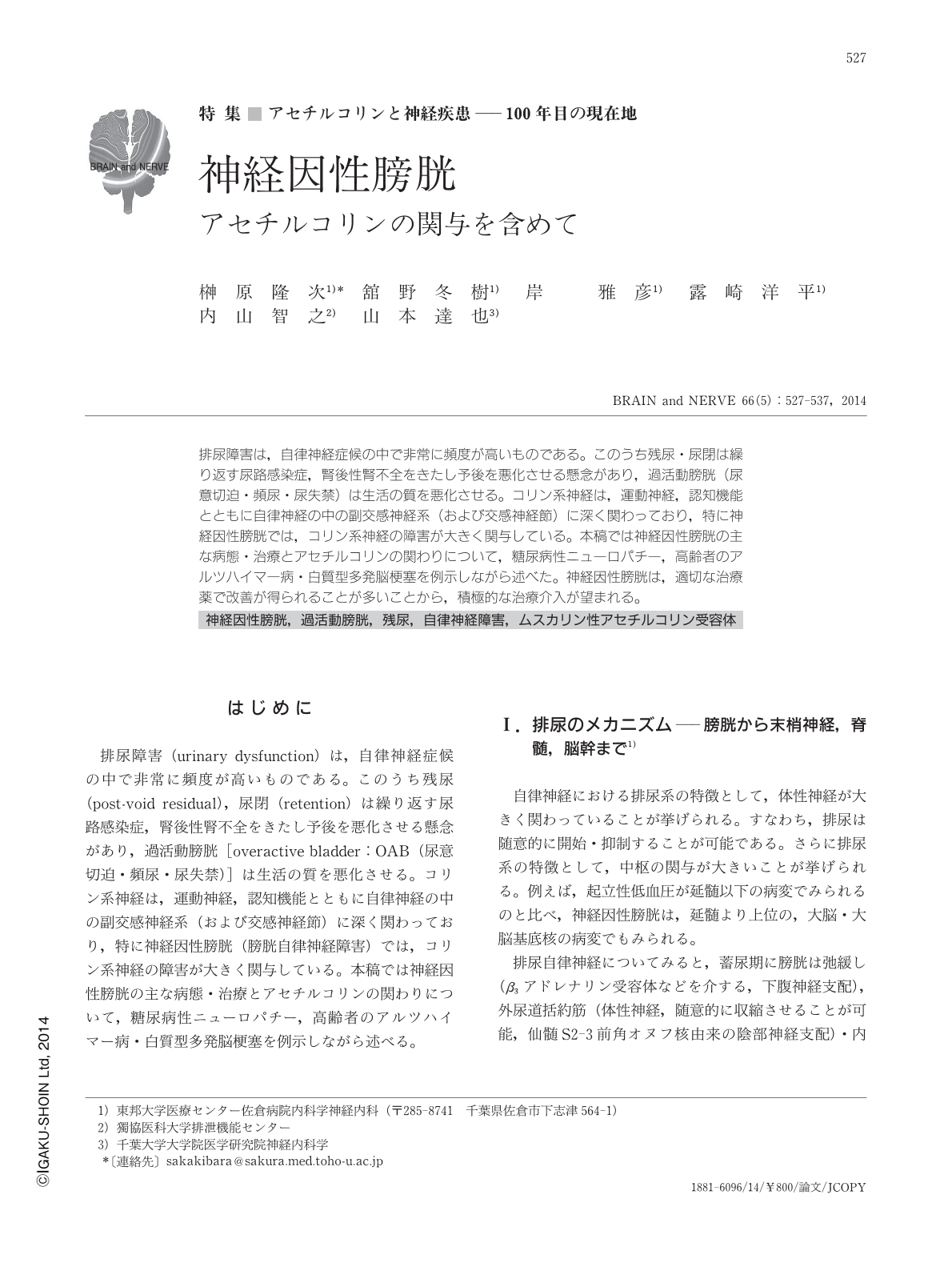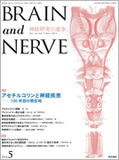Japanese
English
- 有料閲覧
- Abstract 文献概要
- 1ページ目 Look Inside
- 参考文献 Reference
排尿障害は,自律神経症候の中で非常に頻度が高いものである。このうち残尿・尿閉は繰り返す尿路感染症,腎後性腎不全をきたし予後を悪化させる懸念があり,過活動膀胱(尿意切迫・頻尿・尿失禁)は生活の質を悪化させる。コリン系神経は,運動神経,認知機能とともに自律神経の中の副交感神経系(および交感神経節)に深く関わっており,特に神経因性膀胱では,コリン系神経の障害が大きく関与している。本稿では神経因性膀胱の主な病態・治療とアセチルコリンの関わりについて,糖尿病性ニューロパチー,高齢者のアルツハイマー病・白質型多発脳梗塞を例示しながら述べた。神経因性膀胱は,適切な治療薬で改善が得られることが多いことから,積極的な治療介入が望まれる。
Abstract
Bladder dysfunctions are one of the most common autonomic dysfunctions. Among these, overactive bladder (OAB) (urinary urgency and frequency) significantly worsens the quality of life in patients, and large post-void residual/urinary retention causes urinary tract infections, kidney dysfunction, and may affect morbidity. In the present paper, we discuss the neural control of micturition, with particular reference to acetylcholine. Further, we discuss appropriate management of bladder dysfunction in diabetic neuropathy (a common cause of urinary retention), Alzheimer's disease, and white matter lesions (common causes of OAB in the elderly). For OAB, anti-cholinergics are the mainstay, whereas for large post-void residual/retention, alpha-blockers, cholinergic agents and clean, intermittent self-catheterization are the treatments of choice. Treatment of bladder dysfunctions is an important target for maximizing patients' quality of life.

Copyright © 2014, Igaku-Shoin Ltd. All rights reserved.


